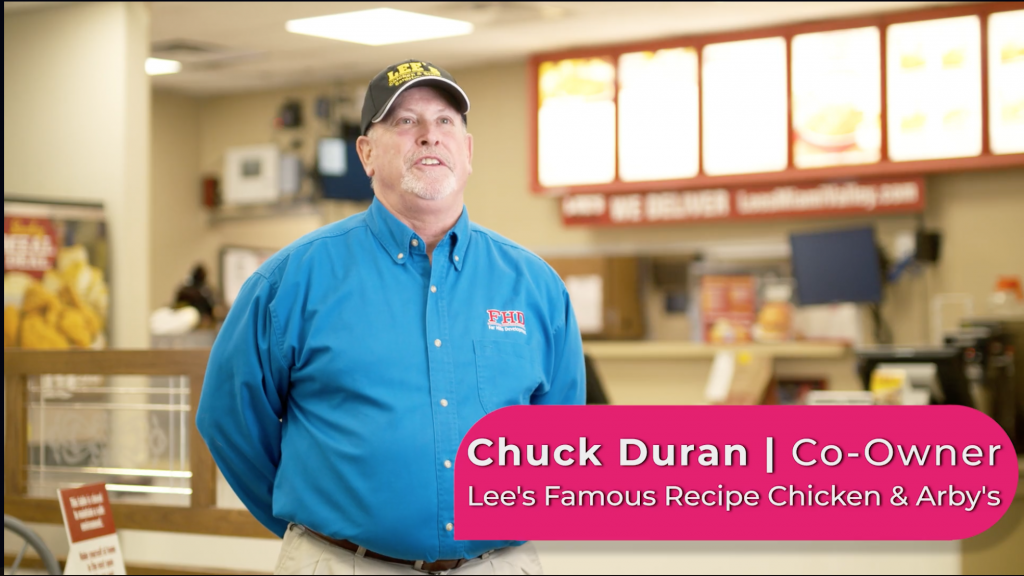
Lee’s Famous Recipe Chicken is a chain in Ohio that has gone all in on AI chatbot ordering at its drive-through locations. (Source: HI Auto video)
AI Chatbots with Celebrity Voices the Next Thing at Fast Food Drive-Thrus
A story on thedrive.com slams a new phenomenon in drive-through ordering—AI chatbots that get orders wrong while communicating via voice cloning so that they sound like local celebrities.
The story quotes QSR Magazine, which reported that voice synthesis technology from HI Auto is being used at 400 fast-food drive-throughs throughout the United States already, many of them in Ohio. According to the story, it’s not as enticing as the chains might believe:
“If you thought prodding away at a cheap tablet was the worst a restaurant ordering experience could get, you’d be wrong. The next time you order in a drive-thru, you may not interact with a real person, but a tarted-up ‘AI’ chatbot with a celebrity’s voice. And it’s even more likely to mess up your order than the underpaid teen it replaced.”
The main adopter of the new tech is Ohio-based chain Lee’s Famous Recipe Chicken, whose drive-thru uses the voice of former NFL player Keith Byars. A trial of a similar tech at the Wendy’s chain is also having some issues.
“Customers aren’t robots, and they don’t communicate like them,” thedrive.com noted. “They’ll repeat themselves, change their minds, want orders customized, or simply communicate poorly, as anyone who has worked fast food can attest. The bots themselves can also misinterpret what they hear.”
While Wendy’s says customers get through the drive-through 22 seconds faster, the order accuracy is only 86%, so workers are still sidelined correcting mistakes. The story’s author, James Gilboy, is highly critical of using the AI chatbots in their current state.
“But automating human interaction isn’t as easy as robotically assembling a sandwich, because it involves layers of abstraction that bots cannot intuit. While the foundations of these programs are often sold as ‘AI,’ they are in fact dumb, and limited to their existing knowledge bases.”
read more at thedrive.com







Leave A Comment